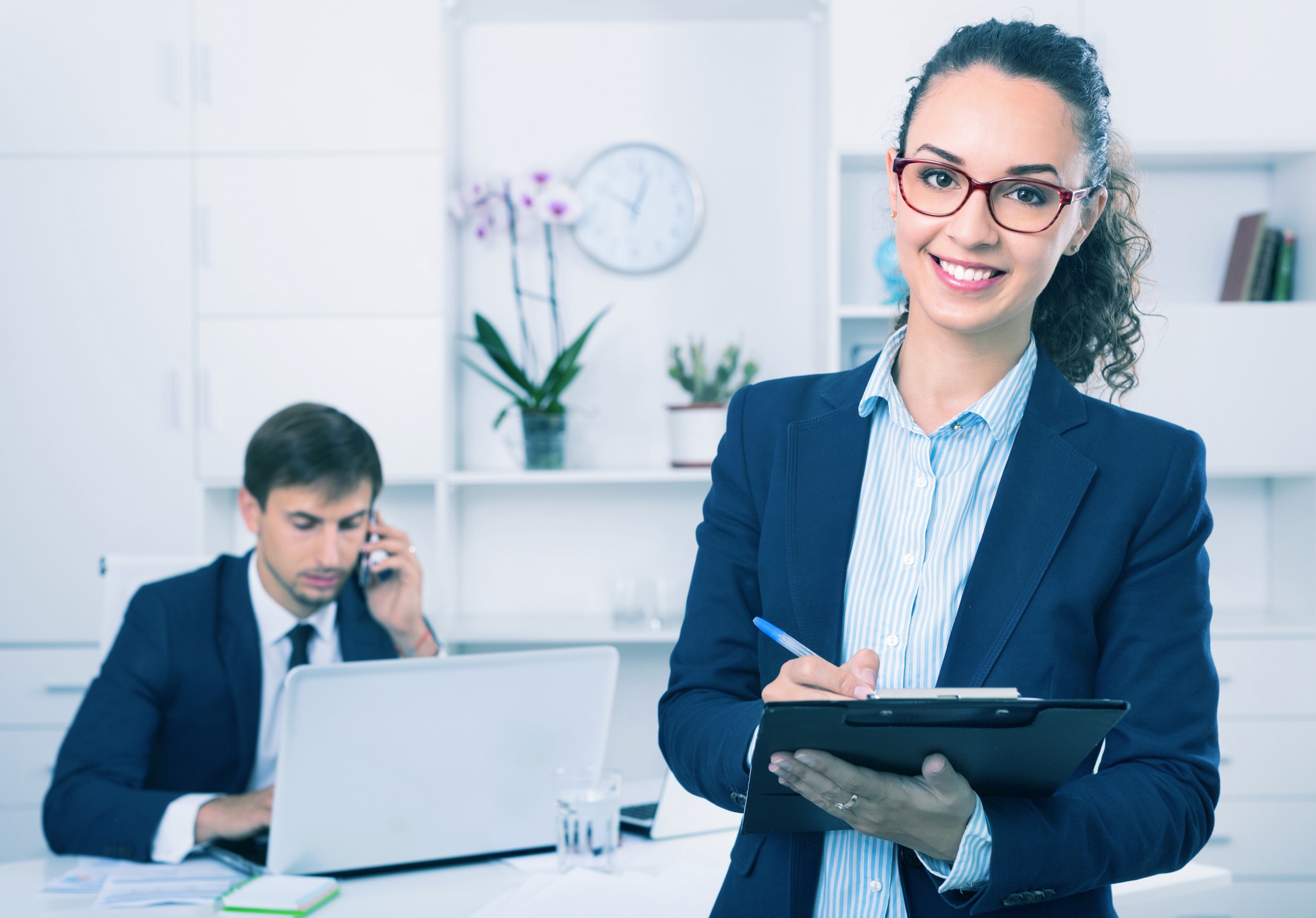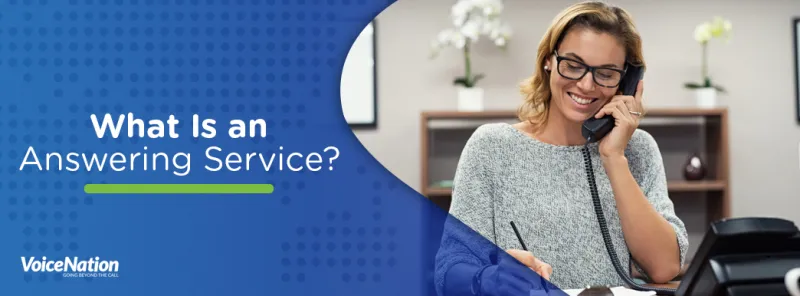All Categories
Featured
Table of Contents
- – What Is The Best What Is An Answering Service? ...
- – Who Is The Best Telephone Answering Service - ...
- – What's The Best How Outsourced Phone Answering...
- – What Is The Best How Do Answering Services Wo...
- – Whats The Best What The Heck Is An Answering ...
- – What Is The Best What Is The Difference Betw...
What Is The Best What Is An Answering Service? On The Market Right Now
This device and its successors were developed by Sava Jacobson, an electrical engineer with a personal consulting business. While early answering machines utilized magnetic tape technology, a lot of modern-day devices uses solid state memory storage; some devices use a combination of both, with a solid-state circuit for the outgoing message and a cassette for the incoming messages.
"toll saving" below) (virtual telephone answering service). This is helpful if the owner is evaluating calls and does not wish to speak to all callers. In any case after going, the calling celebration ought to be informed about the call having actually been addressed (for the most part this begins the charging), either by some remark of the operator, or by some greeting message of the little, or addressed to non-human callers (e.
This holds particularly for the Little bits with digitally stored greeting messages or for earlier machines (prior to the increase of microcassettes) with a special limitless loop tape, separate from a 2nd cassette, committed to recording. There have been answer-only devices without any recording capabilities, where the greeting message had to notify callers of a state of current unattainability, or e (professional phone answering service).
Who Is The Best Telephone Answering Service - Answer My Phone Provider In My Area

about schedule hours. In taping TADs the welcoming normally includes an invitation to leave a message "after the beep". A voice mail that uses a microcassette to record messages On a dual-cassette answerphone, there is an outgoing cassette, which after the specified variety of rings plays a pre-recorded message to the caller.

Single-cassette answering devices consist of the outbound message at the start of the tape and incoming messages on the remaining area. They first play the statement, then fast-forward to the next offered area for recording, then tape the caller's message. If there are lots of previous messages, fast-forwarding through them can trigger a substantial delay.
This beep is typically described in the welcoming message, asking for that the caller leave a message "after the beep". TADs with digital storage for the taped messages do disappoint this delay, naturally. A little bit may provide a remote control center, whereby the answerphone owner can ring the house number and, by getting in a code on the remote telephone's keypad, can listen to tape-recorded messages, or delete them, even when far from home.
What's The Best How Outsourced Phone Answering Service Can Help Your ... On The Market

Consequently the maker increases the number of rings after which it responds to the call (typically by 2, leading to 4 rings), if no unread messages are presently saved, however answers after the set variety of rings (normally 2) if there are unread messages. This enables the owner to find out whether there are messages waiting; if there are none, the owner can hang up the phone on the, e.
Some devices likewise enable themselves to be remotely activated, if they have been changed off, by calling and letting the phone ring a certain large number of times (generally 10-15). Some service suppliers abandon calls currently after a smaller number of rings, making remote activation difficult. In the early days of Little bits a special transmitter for DTMF tones (dual-tone multi-frequency signalling) was regionally needed for push-button control, because the formerly utilized pulse dialling is not apt to communicate appropriate signalling along an active connection, and the dual-tone multi-frequency signalling was carried out step-by-step.
Any incoming call is not identifiable with respect to these properties in advance of going "off hook" by the terminal equipment. So after going off hook the calls need to be switched to suitable devices and only the voice-type is instantly accessible to a human, but possibly, however should be routed to a LITTLE BIT (e.
What Is The Best How Do Answering Services Work? Out There
What if I informed you that you do not have to really pick up your device when responding to a consumer call? Someone else will. So hassle-free, ideal? Responding to telephone call does not need somebody to be on the other end of the line. Effective automated phone systems can do the technique just as effectively as a live representative and in some cases even much better.
An automated answering service or interactive voice response system is a phone system that communicates with callers without a live person on the line - business call answering service. When business utilize this innovation, customers can get the response to a question about your organization merely by utilizing interactions set up on a pre-programmed call circulation.
Although live operators update the client service experience, many calls do not need human interaction. An easy taped message or guidelines on how a consumer can recover a piece of details usually fixes a caller's immediate requirement - answering service. Automated answering services are a simple and efficient way to direct inbound calls to the ideal person.
Whats The Best What The Heck Is An Answering Service? To Buy
Notification that when you call a business, either for assistance or item inquiry, the first thing you will hear is a pre-recorded voice welcoming and a series of options like press 1 for client service, press 2 for queries, and so on. The pre-recorded alternatives branch out to other options depending upon the client's selection.
The phone tree system assists direct callers to the ideal individual or department using the keypad on a mobile phone. In some circumstances, callers can use their voices. It's worth keeping in mind that auto-attendant alternatives aren't limited to the ten numbers on a phone's keypad. Once the caller has actually chosen their first alternative, you can create a multi-level auto-attendant that utilizes sub-menus to direct the caller to the ideal type of support.
The caller does not have to interact with an individual if the auto-attendant phone system can handle their concern. The automated service can path callers to an employee if they reach a "dead end" and require support from a live representative. It is costly to work with an operator or executive assistant.
What Is The Best What Is The Difference Between An Answering Service And ... To Buy Now
Automated answering services, on the other hand, are substantially more economical and offer substantial expense savings at approximately $200-$420/month. Even if you don't have dedicated staff to handle call routing and management, an automated answering service enhances productivity by enabling your group to focus on their strengths so they can more efficiently spend their time on the phone.
A sales lead routed to customer service is a lost shot. If a client who has product concerns reaches the incorrect department or gets insufficient responses from well-meaning employees who are less trained to handle a specific type of concern, it can be a reason for frustration and frustration. An automatic answering system can lessen the variety of misrouted calls, consequently assisting your employees make much better usage of their phone time while maximizing time in their calendar for other jobs.
With Automated Answering Systems, you can produce an individualized experience for both your staff and your callers. Make a recording of your primary greeting, and merely update it frequently to show what is going on in your company. You can produce as lots of departments or menu options as you desire.
Table of Contents
- – What Is The Best What Is An Answering Service? ...
- – Who Is The Best Telephone Answering Service - ...
- – What's The Best How Outsourced Phone Answering...
- – What Is The Best How Do Answering Services Wo...
- – Whats The Best What The Heck Is An Answering ...
- – What Is The Best What Is The Difference Betw...
Latest Posts
Business Answering Service ( TAS)
Fast Custom Phone Answering
Best Business Answering Service Near Me ( Geelong)
More
Latest Posts
Business Answering Service ( TAS)
Fast Custom Phone Answering
Best Business Answering Service Near Me ( Geelong)